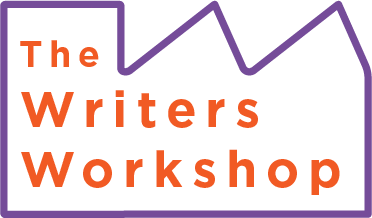Write the sentences, not just the story
Developing Style is a new series of craft classes starting Saturday, April 20th, led by professional editor Lorna Partington. Here's what she has to say about the series and the first class.
"Write the sentences, not just the story." (Janet Fitch, novelist)
What is style? We are told that agents and publishers are looking for it, so as writers we'd better have it. But how do we know if we have it? Is it innate or crafted? Is it the same thing as 'voice'?
In my view, style is not what you say but the way that you say it, and your authorial voice is strong when you have both interesting things to say and powerful ways of saying it. I can't teach a writer how to have a unique perspective on the world, but I can help writers explore how to better express their ideas. And so, I'm launching a new series of craft classes called Developing Style.
In each session, we'll touch on many of the issues that, as a copy editor, I often come across in manuscripts so that you can learn to avoid those pitfalls in your writing. This series will take a playful approach to the style fundamentals. Through exercises and discussion, we'll explore the construction tools that help you build strong prose, starting in class one with sentences, then moving on to words in class two, then punctuation, tone and, finally, flair. In the first session on April 20, we'll explore how the four sentence structures can support (or hinder) expression and then play around with the conventions for literary effect.
In her book Sin and Syntax: How to Craft Wickedly Good Prose, Constance Hale has this to say about sentences: "Sentences should vary as much as our objects of desire--sometimes we want them brawny, sometimes we want them brainy, sometimes silken, sometimes brutal [...] As writers, we must become intimate with the ferocity of simple sentences as well as the gentle tumbling of phrases and clauses." Personally, I don't look for brutality in my objects of desire, but I get Hale's point because I see problems with sentences every day in my life as a copy editor (aka 'sentence wrangler').
Many of the sentences I wrangle are grammatically correct ... but correct doesn't automatically mean 'good'. Often, sentences have such poor structure that they cannot support the weight of an author's ideas. Sometimes a sentence fails because its core idea is lost amid a mess of other ideas. Sometimes the sentence has reiterated an earlier idea unnecessarily. And sometimes a sentence simply doesn't have an idea at all. In a nutshell, it is my job to ensure that every sentence is the best possible expression of the author's thoughts, hypotheses, or knowledge.
Sentences are hard; if they were easy, editors would never have existed! It's my hope that participants in my Developing Style classes leave each session with a little more confidence in how to self-edit their prose so that if/when their manuscript goes to a professional editor, there are fewer sentences to wrangle. I hope you'll join me!

